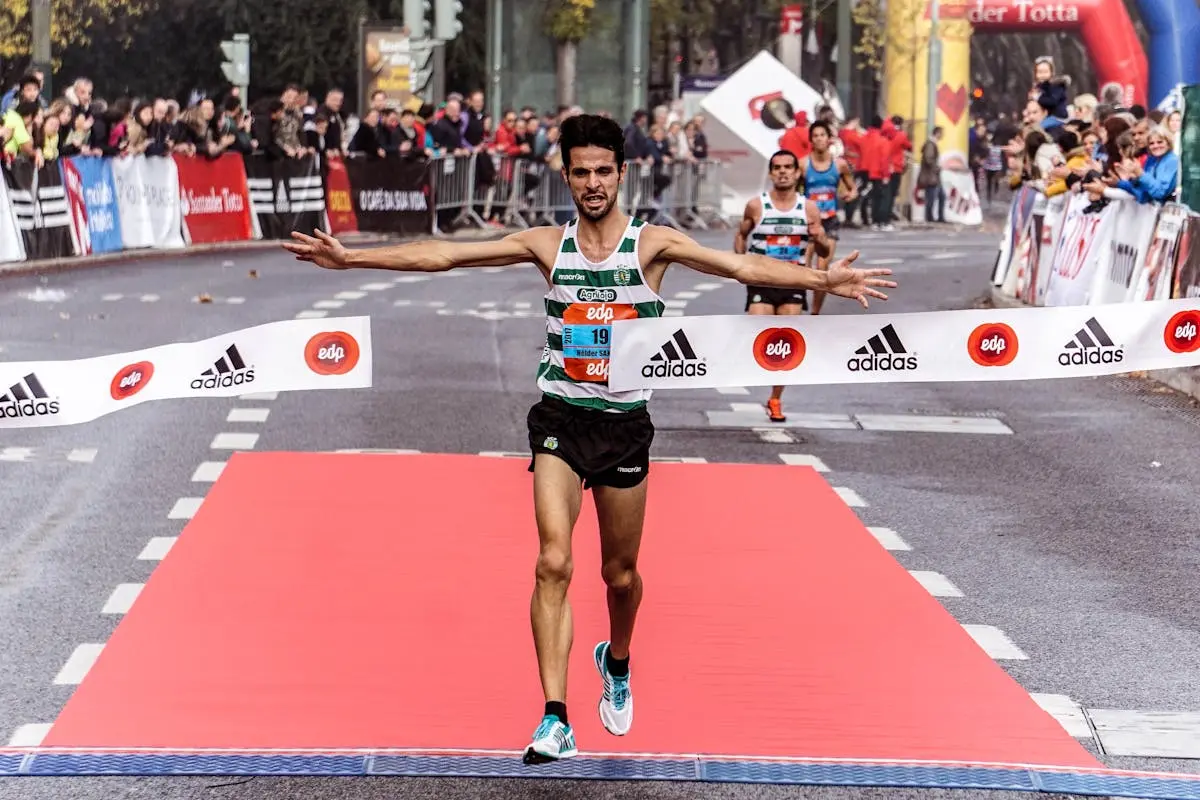The Role of Nutrition in Achieving Peak Health Optimization for Athletes

Introduction to Health Optimization for Athletes
For athletes, hitting peak performance isn’t just about training hard; it’s also about what they put into their bodies. Imagine your body as a high-performance engine. What you feed it can either turbocharge your performance or cause you to sputter out. Health optimization for athletes begins with understanding that nutrition plays a key role. It’s not only about eating to satisfy hunger or craving that post-workout smoothie. It’s about fueling your body with the right nutrients to enhance recovery, increase strength and stamina, and reduce the risk of injury. So, by picking the right foods and supplements, athletes can significantly improve their athletic abilities, recover faster from intense training, and reach those peak performance levels they are aiming for. Think of nutrition as part of your training program, not separate from it. This approach could be the game-changer in achieving those lofty athletic goals.
The Importance of Nutrition in Athletic Performance
Nutrition isn’t just about maintaining a healthy weight; it’s a key player in boosting an athlete’s performance levels. It’s simple: when you give your body the right kind of fuel, it runs better. Carbohydrates, for example, are like premium gas for athletes. They power up those intense workouts and long training sessions. Proteins come in next, repairing and building muscle tissue that gets broken down during exercise. Don’t forget about fats. Yes, fats. They’re not the enemy. In fact, they’re essential for longer, less intense exercises by providing a slow-burning source of energy.
But it’s not just about what you eat; timing matters too. Eating the right foods at the right time can make a huge difference. A pre-workout meal or snack can provide the energy you need to push through a tough session, while post-workout nutrition helps with recovery and muscle repair.
Let’s break it down to what matters:
- Carbs fuel your energy.
- Proteins repair and build muscle.
- Fats keep the energy coming for the long haul.
- Timing is everything - eat right, perform right.
In short, nutrition is pivotal in athletic performance. It’s the foundation for peak health optimization, transforming good athletes into great ones.
Macronutrients: The Building Blocks for Peak Health
Athletes, listen up. To hit your peak, you need the right fuel. It’s not just about calories. Think of your body like a high-performance engine. What matters? Macronutrients: Carbs, Proteins, Fats. Carbs are your energy source, powering you through sprints and marathons alike. Don’t skimp. Proteins are the building crew, repairing and building muscle after every workout. Without enough, you’re not recovering right. And Fats, often misunderstood, are crucial. They support muscle health and give you long-lasting energy. It’s a balance. Get it right, and you’re unlocking your best performance. Miss it, and you’re short-changing your potential. Simple.
Micronutrients: Vital for Optimal Body Functioning
Micronutrients might not get as much spotlight as proteins and carbs, but they’re the secret agents your body relies on for optimal functioning. Think vitamins and minerals—small in dose, massive in impact. They’re crucial for energy production, brain function, and even bone health. Without enough, you risk not just your athletic performance but your overall health. For athletes, getting enough vitamin D, calcium, iron, and magnesium can make the difference between a good and a great performance. Low levels can lead to fatigue, weak bones, and longer recovery times. Remember, it’s not just about the amount but the right mix of these nutrients that keeps your engine running smooth. So, include a variety of colorful fruits and vegetables, lean meats, dairy, nuts, and seeds in your diet to make sure you’re hitting all your micronutrient goals.
Timing Your Meals for Maximum Performance
Timing your meals right is as crucial as what you eat, especially for athletes aiming for peak performance. Think of your body like a car; to keep it running smoothly, you need to fuel it properly and at the right times. Eating at the wrong time or skipping meals can lead to energy dips, slower recovery, and even impact your overall performance. Here’s the lowdown: Eat a balanced meal 2-3 hours before a workout to ensure you have the energy you need. This meal should be rich in carbs and protein. Post-workout, aim to eat within 30 minutes to an hour. This helps your body to repair muscles and replenish energy stores. If you’re training multiple times a day or have competitions, snack on something light like fruit or a protein bar 30-60 minutes before your next session to keep energy levels steady. Remember, staying hydrated is key too. Drinking water before, during, and after training aids performance and recovery. Getting the timing right will help you train harder, recover faster, and reach your athletic goals.
Hydration: An Often Overlooked Aspect of Health Optimization
Staying hydrated isn’t just about avoiding thirst; it’s a core strategy for peak performance and health, especially for athletes. Water regulates your body temperature, lubricates joints, and helps transport nutrients to give you energy and keep you healthy. If you’re not hydrated, your body can’t perform at its highest level. You may feel tired, have muscle cramps, dizziness, or other severe symptoms. An easy way to check your hydration level is to monitor the color of your urine. Aim for a light straw color; anything darker means you need to drink more water. Remember, by the time you feel thirsty, you’re already slightly dehydrated. So, keep a bottle of water handy during workouts or competitions. And don’t forget, the needs for hydration can increase with intensity and duration of the activity, as well as in hotter and more humid environments. Keep it simple, drink enough water, and you’ll be setting the stage for your best performance.
Supplements: Do They Help in Achieving Health Goals?
Athletes often think popping pills will shoot them to peak performance. But let’s get real: it’s more complicated. Sure, supplements can fill nutritional gaps, but they’re not magic. You need a balanced diet first—think proteins, carbs, healthy fats, vitamins, and minerals. Supplements might help if you’re missing something. There’s whey protein for muscle repair and building, BCAAs for endurance, creatine for strength, and multivitamins for overall health. But, remember, not all supplements are created equal. Research and quality matter. And, oh, too much of a good thing? Potentially harmful. Always consult a doctor or a dietitian before starting. Bottom line: Supplements can aid in reaching health goals, but they’re not the sole ticket to peak performance. Real food and hard work lead the way.
Designing a Nutrition Plan for Your Athletic Needs
Designing a nutrition plan for your athletic needs means knowing what your body needs to perform at its best. First, understand the basics: carbohydrates are your main source of energy, proteins help repair and build muscle, and fats are vital for long-term energy. But it’s not just about what you eat; it’s also about when. Eating carbs before your workout can give you a quick energy boost, while consuming proteins and fats after helps with muscle recovery. Hydration is key too — water supports every function of your body. Tailor your diet to the intensity of your training. More rigorous activities may require more carbs for energy. And always listen to your body; what works for one athlete might not work for you. Finally, consider working with a sports nutritionist. They can customize your diet to ensure you’re getting the right nutrients in the right amounts. Remember, a well-designed nutrition plan is as critical as your training regimen in achieving peak athletic performance.
Common Nutritional Challenges for Athletes and How to Overcome Them
Athletes often face nutritional challenges that can impact their performance and overall health. One such challenge is getting enough calories. Intense training requires high energy levels, but filling those needs with nutritious foods instead of empty calories can be tough. The trick is focusing on calorie-dense foods that are also nutrient-rich, like nuts, seeds, avocados, and lean meats. Another issue is hydration. Water is crucial, yet it’s easy to forget about drinking enough throughout the day. Carrying a water bottle and setting reminders can help stay on track. Protein intake is vital for muscle repair and growth, but it’s not just about the amount. The timing and quality of protein are key. Incorporating a good protein source post-workout and ensuring a varied diet can cover this base. Finally, micronutrient deficiencies, especially iron and calcium, can be a roadblock. Eating a variety of foods, sometimes with the help of supplements under professional advice, ensures these needs are met. Overcoming these challenges isn’t just about eating right; it’s a strategic part of training and achieving peak athletic performance.
Conclusion: The Ongoing Journey of Health Optimization through Nutrition
The journey toward peak health for athletes is never-ending. Every bite, every meal plays into the bigger picture of optimal performance. Nutrition isn’t just about eating the right stuff; it’s about fueling the engine that drives athletes toward their goals. Remember, there’s no one-size-fits-all plan. What works for one might not work for another. The key is to listen to your body, tweak your diet as needed, and always aim for balance and variety in your meals. Keep learning, stay adaptable, and let nutrition be your secret weapon on the path to achieving your highest potential. Keep pushing, because in this journey, every step matters.







